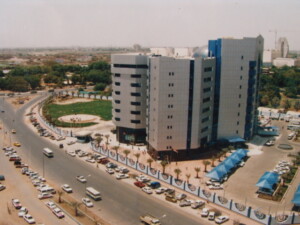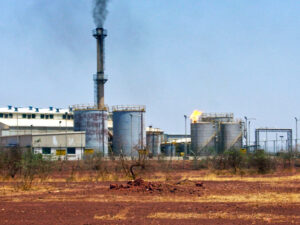UN World Food Programme: ‘Sudan faces significant increase in food insecurity’
Amid Sudan’s economic crisis and the recent inflation of the Sudanese Pound (SDG), the United Nations World Food Programme (WFP) reported on 19 April, the national average retail price of food in Sudan has significantly increased, making “nutritious food unaffordable for many families”.
 Displaced in Naivasha camp, North Darfur, unload bags of sorghum from a WFP lorry, February 2014 (Photo credit: Albert González Farran - Unamid)
Displaced in Naivasha camp, North Darfur, unload bags of sorghum from a WFP lorry, February 2014 (Photo credit: Albert González Farran - Unamid)
Amid Sudan’s recent inflation of the Sudanese Pound (SDG), the United Nations World Food Programme (WFP) reported on 19 April, the national average retail price of food in Sudan has significantly increased, making “nutritious food unaffordable for many families”.
The WFP said that the average retail price of sorghum in Sudan during March was SDG198 per kilo, marking a sharp rise of 20 per cent compared to February. While the price of wheat flour stood at SDG681 pounds per kilo, a marked increase of 14 per cent compared to the previous month. The average price of a goat SDG18,958 per head was down slightly by 1.33 per cent, compared to the previous month. The price of peanuts reached SDG11,548 per sack, representing a significant increase of 14 per cent, compared to the previous month.
The WFP stated, “the average cost of the WFP domestic food basket rose to SDG349.93, a sharp increase of nearly 20 per cent, compared to the previous month”.
As a result of food insecurity and Sudan’s recent economic decline, the prices of crops and foods are expected to increase during 2022.
During a meeting with the Director of Strategic Inventory at the Agricultural Bank, the governor of East Darfur, Mohamed Adam Abdelrahman, lamented about the ‘food disparity’ in East Darfur of an estimated 50,000 tons of corn millet.
The governor demanded the Agricultural Bank to satisfy the shortage and called on the government to support his state in addressing food insecurity before the fall season.
Read the United Nations World Food Programme report here: WFP Market Monitor – Sudan: March 2022











 and then
and then